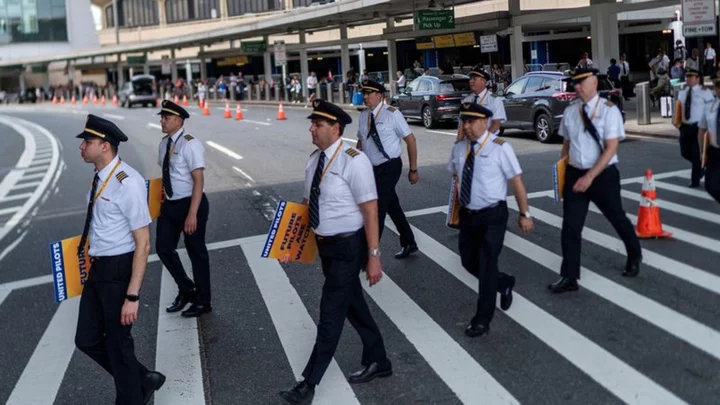By David Shepardson
WASHINGTON (Reuters) -A U.S. House of Representatives committee on Wednesday narrowly voted to raise the mandatory commercial pilot retirement age to 67 from 65.
Members of the House Transportation and Infrastructure Committee voted 32 to 31 for the pilot age amendment to a proposed five-year bill to reauthorize the Federal Aviation Administration (FAA) aviation safety and infrastructure programs for the next five years.
The proposal faces opposition from unions and an uncertain fate by a U.S. Senate committee, which will consider its version of the FAA measure on Thursday.
The Regional Airline Association (RAA) praised the pilot age hike. Earlier, the association said 324 airports have lost, on average, a third of their air service, including 14 small airports that have lost all service, with more than 400 airplanes parked due to a lack of pilots.
The Air Line Pilots Association (ALPA) opposed raising the retirement age. Even if the proposal is approved, the union noted that international rules would still prevent pilots older than 65 from flying in most countries outside the U.S.
ALPA called the proposal a "politically driven choice that betrays a fundamental understanding of airline industry operations, the pilot profession, and safety."
Senator Lindsey Graham, a sponsor of the effort, has noted that in 2007 the United States raised the mandatory retirement age from 60 to 65, and "the sky did not fall." Transportation Secretary Pete Buttigieg has said he does not support raising the pilot retirement age.
The House bill would bar airlines from charging family seating fees but would not set minimum seat size requirements or impose new rules to compensate for delays. It would also mandate by 2030 an increase to the recording time of cockpit voice recorders from a two-hour loop to a proposed 25-hour loop, and require a cockpit video recorder.
(Reporting by David Shepardson; Editing by David Gregorio)

